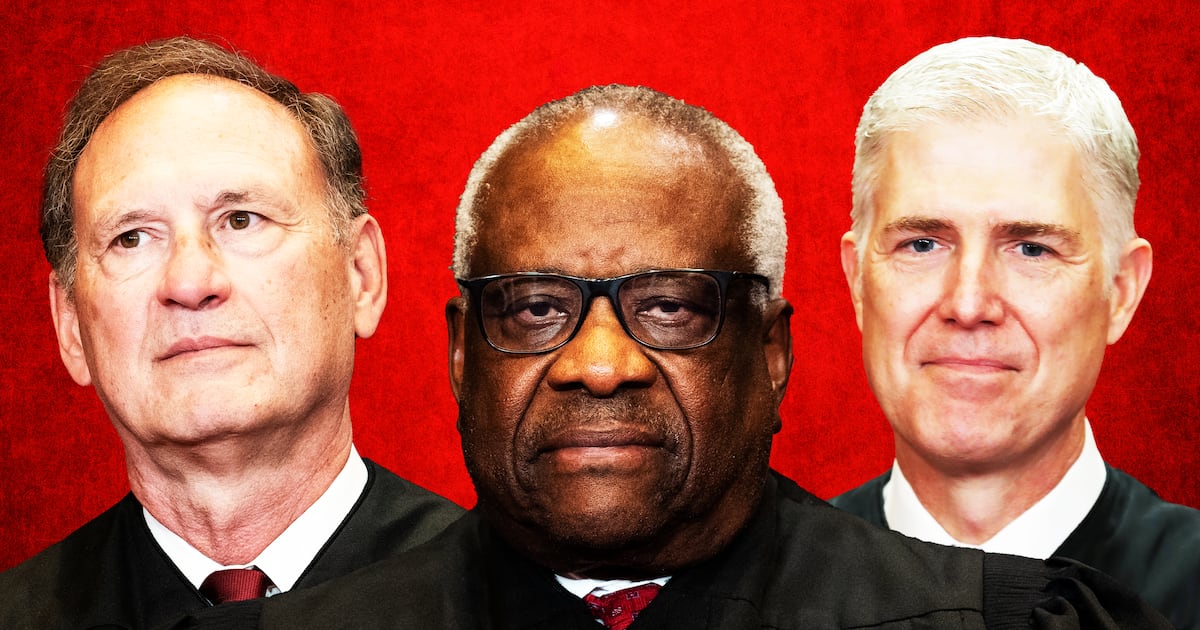Joseph Palmarchuk’s longtime wife, Phillis, had a bad heart. It was 2011, and their home had just been foreclosed upon. Both were pinned down in a cramped trailer on their daughter’s Michigan farm.
So the 68-year-old ex-Marine and blue-collar retiree had to swallow his pride one last time and borrow the gas money from his kid to drive from Grand Rapids, Michigan, to claim his $1.25 million in riches.
The phone call had come that most can only dream about: He’d won the Tennessee lottery.
ADVERTISEMENT
Then, after he and his wife were finally able to leave their trailer, it happened again. He beat the odds.
He won the lottery again.
But the transformation was not what he would have imagined. Within a short time, the usually gregarious and cheerful Palmarchuk was reduced to a quivering mess, he says. He answered calls by warily picking up his phone and adopting his lawman moniker.
“There were a lot of foreigner phone calls. A ton of foreigner phone calls,” Palmarchuk said.
Palmarchuk was dodging strangers who had heard about his good fortune. And these strangers requested—sometimes demanded—that he reward them with a gift to make their lives better. Others hawked Florida timeshares, or their services as financial gurus who said they knew better than anybody how to put his millions to work.
The retired Chevrolet service manager started answering the phone in character. “Michigan State Police,” Palmarchuk would say. “How can I direct your call?”
The happiness Palmarchuk had thought would come to him and Phillis after his miraculous lottery wins had been compromised, leaving him fearful and leery of others.
The reason? The state of Tennessee mandated his identity, as a lottery winner, be made publicly available.
When the state shared his name as a lottery winner, the deluge occurred, courtesy of the Internet.
“Once I hit the Second Chance, then it hit the Internet,” Palmarchuk told The Daily Beast in a phone interview.
The Palmarchuks returned to Tennessee as millionaires, but Phillis had since suffered a massive heart attack. The couple is hoping that a miracle—this time not money, but a donor match—will happen.
“She’s still is on the transplant list at Vanderbilt University,” Palmarchuk said.
And while dealing with his wife’s failing health, Palmarchuk says his family still receives incessant calls and communications from strangers asking for cash.
“We get letters in the mail from perfect strangers asking for help,” he said.
But if a Michigan state representative had his way earlier on, Palmarchuk’s double lotto bonanza may have never been known.
The Great Lake State’s Representative Ray Franz believes the instant winners become instant bull’s-eyes.
“Today’s technology allows us to track anyone, anywhere—and there have been incidents of threats and violence perpetrated against lottery winners,” he said.
And the windfall can wipe out family and friend ties. “Lottery winnings, while for many is a major plus in their lives, it can be a major negative at times,” Franz told The Daily Beast. “It costs friendships. It costs family relationships. It costs jobs.”
Representative Franz has drafted a bill that is moving through the legislature to allow those who win the lottery a reprieve from those who prey on new lottery winners. It was heard in the Michigan’s state House last week.
More than a decade ago, the state instituted a provision to award winners the option to remain anonymous if they win $10,000 or more. But the current opt-out only applies to winners of $10,000 or more games in Michigan’s state lottery. Franz wants the anonymity to extend to the national big-ticket, multistate items like Mega Millions, Powerball, or Lucky For Life jackpots.
“This legislation would grant anonymity to winners of multistate games,” he said. “They are the only two games in Michigan that do not allow for the option of anonymity.”
Franz knows not everyone will choose anonymity, but he wants the option available anyway. Take one Michigan couple who last week almost tossed away their $2 million ticket before they double-checked the winning numbers and discovered they were rich—but still too jittery to go public. “Almost everyone in town knows we are the big winners and they are happy for us,” the husband said.
At the Clear Lake Bar where the unknown husband purchased the lucky $20 ticket, the bartender told The Daily Beast she’s been fielding calls for days “asking who won and if it’s true somebody won,” she said. Pressed about who he was, the bartender who sold the ticket also wanted to remain anonymous. She would only say that “he’s well known around the bar.”
North American Lottery Association President Terry Rich thinks the legislation is unnecessary—and might even be bad for business. “We sell farms here for $20 million all the time,” he told The Daily Beast, referring to the state of Iowa, where he also chairs its lottery.
And Rich says it’s proven that when the big lotteries strike, the revenues uptick too. “There’s no doubt: When we have a big winner we sell more,” he said. “We put everywhere [that the winner’s identity will be made] public and when you win in Iowa we’re going to release your information.
“It should be public knowledge. If you are a winner and don’t want the public to know, don’t play,” he said.
He thinks legal protections from would-be attackers are meritless. “Show me one case where someone was harmed in any way as a lottery winner solely because we released their name,” he said.
There have been few headline-grabbing homicides that appear to have been motivated by victims’ lottery wins. A Tampa Bay, Florida, woman, DeeDee More, befriended Abraham Shakespeare back in 2009 after he won $30 million in the state lottery. Three years later, Moore was found culpable for Shakespeare’s killing.
And a year after that Urooj Khan, a 44-year-old winner of an Illinois scratch ticket, died of cyanide poisoning before he could even cash his lump-sum check. Nobody has been charged with the crime.
These macabre incidents may be anomalies. As for the winners with whom The Daily Beast spoke, the fallout isn’t necessarily a threat of harm or death but harassment by opportunists.
Take retired paper mill worker Gary “Cudder” Anderson. He hit a Michigan Lottery $250,000 scratcher back in January. The 64-year-old outdoorsman upgraded his generator to a pricier Honda for his family’s 80-acre camp, where they garden and hunt deer and birds.
But he did field unsolicited requests. “Some people kind of asked for some money or hinted at it,” he said. “But I’m pretty level-headed and stayed away from it.”
Anderson said the random calls quit and that most of it was genuinely positive. “It’s nice to know that someone who has worked and supported himself since he was 16-years-old—and somebody they know—won it like them,” he told The Daily Beast. “I’m an average ordinary Joe who got lucky and won it and people are happy for that. When somebody you know wins it, it’s like a dream that can be achieved.”
Ask the Michigan Lottery folks and they say the big reveal of the winner comes down to human curiosity.
“What really gets people’s attention are the dollar amounts. And secondary to that, it’s ‘I want to know who won,’” the Michigan Lottery spokesman Jeff Holyfield told The Daily Beast.
The Michigan State Lottery isn’t in support of House Bill 4433, which would grant anonymity to interstate winners.
“From our perspective these folks are receiving substantial sums of public money and the public should know who they are. The people in the state of Michigan should be able to know who wins $66 million in a jackpot,” the spokesman said.
In 2014, 69 percent of those who won $50,000 or more didn’t want their names or likenesses to go public. But Holyfield counters, “We did have 31 percent who agreed to let us use their names.”
Holyfield pointed out that the only danger a minted lotto millionaire faces is by the fourth estate. “They’re hounded by the media when they win and, yeah, it’s typically a one-day story,” he said.
Their agency maintains that most of its smaller victors are kept under wraps anyway. Save for the bulldog journalist, he thinks, there may only be a few random strangers hoping for a handout but nothing sinister.
“If someone wins a million dollars or more there may be some family or friends asking to ‘help me out,’” Holyfield said. “It’s not going to be a line of cars sitting outside [the winner’s] house.”
And then there’s the cost. According to a legislative analysis conducted by critics of the bill, the state’s lottery already raked in $742.8 million in School Aid funding and Franz’s legislation “would have a negative fiscal impact… on sales, thereby reducing annual distribution to the School Aid Fund.”
If Michigan succeeds, it would join Delaware, Kansas, Maryland, North Dakota, Ohio, and South Carolina in allowing lottery winners to remain anonymous. Four other states—Colorado, Connecticut, Massachusetts, and Vermont—grant anonymity if the winners claim their winnings through a trust.
A similar nondisclosure lottery bill tried and failed in North Carolina last year. The North Carolina Lottery, which has only been writing out oversized, seven-figure checks for nine years, told lawmakers that publicizing the names of big winners was an effective way to let the public know the games weren’t rigged.
“We didn’t support the bill,” Ryan Kennemur, spokesman for the North Carolina Lottery, told The Daily Beast. “We felt it would hurt the honesty and integrity of our games.”
Their $1.8 billion in profits made a compelling case too. “We’re the only lottery in the nation that showed consistent growth in the last eight years,” Kennemur said.
The South Carolina Education Lottery, however, allows for complete anonymity.
“It’s totally up to what the player wants,” spokeswoman Holli Armstrong told The Daily Beast. “On our claim form, when a player comes forward, they can say yes or no for publicity or not. That’s how it’s always been and that’s what’s worked for us.” Armstrong said half of the winners opt to go public.
Kansas has the same protections as South Carolina, where Nelson Worley, 45, still runs his construction business in Osawatomie, Kansas, after coming into $1 million in 2013. He wasn’t going to reveal his name to The Daily Beast, but his ex-wife talked him into it.
Like other lotto winners, Worley said he was overcome by the interest. But it wasn’t friends and family this time. Worley was instead besieged by bill collectors. “They just were all over me after I won,” he said.
Keeping his lottery win under wraps? No chance.
“I live in a small town so there was probably no way,” he said. In hindsight, Worley wished he could have kept quiet. “I just don’t feel likes it’s everybody’s business.”
John Towse won a whopping $17.6 million in 1993. Before he won, Towse’s son said his father was doing “backbreaking work” in Gardner, Kansas, as a mason.
Before Towse died, he gave some of the winnings away and shared it with his family, his son said.
“I know he received a lot of phone calls trying to get my father to invest and he quit answering the phone at one point and later changed his phone number, too. That was back before cellphones,” said the son.
The Internet, at the time, was still in its infancy, but Towse’s son says the solicitations never really stopped, and they extended all the way through his family. “People would call me thinking I was my father,” he said. “I told them—you got the wrong guy.”
Towse’s 46-year-old son, who asked to remain anonymous, says he can still hear the echos of the phone ringing off the hook in his father’s home.
“In my humble opinion,” he said, “everybody should have the right to stay anonymous.”






